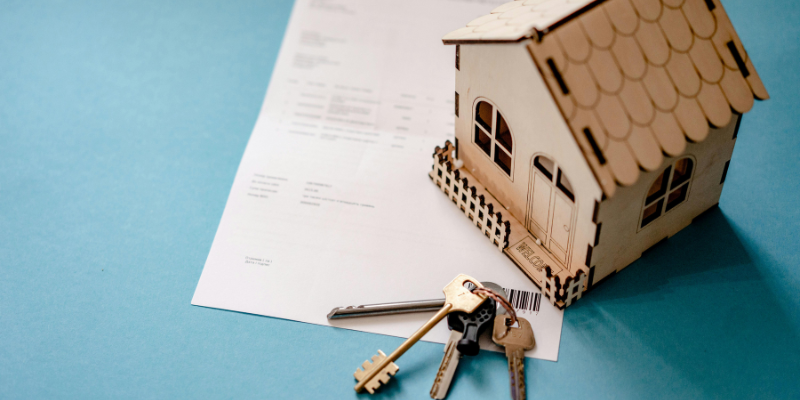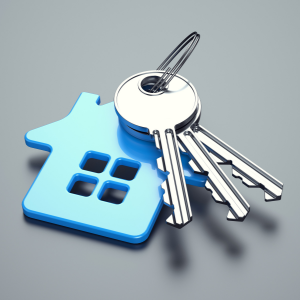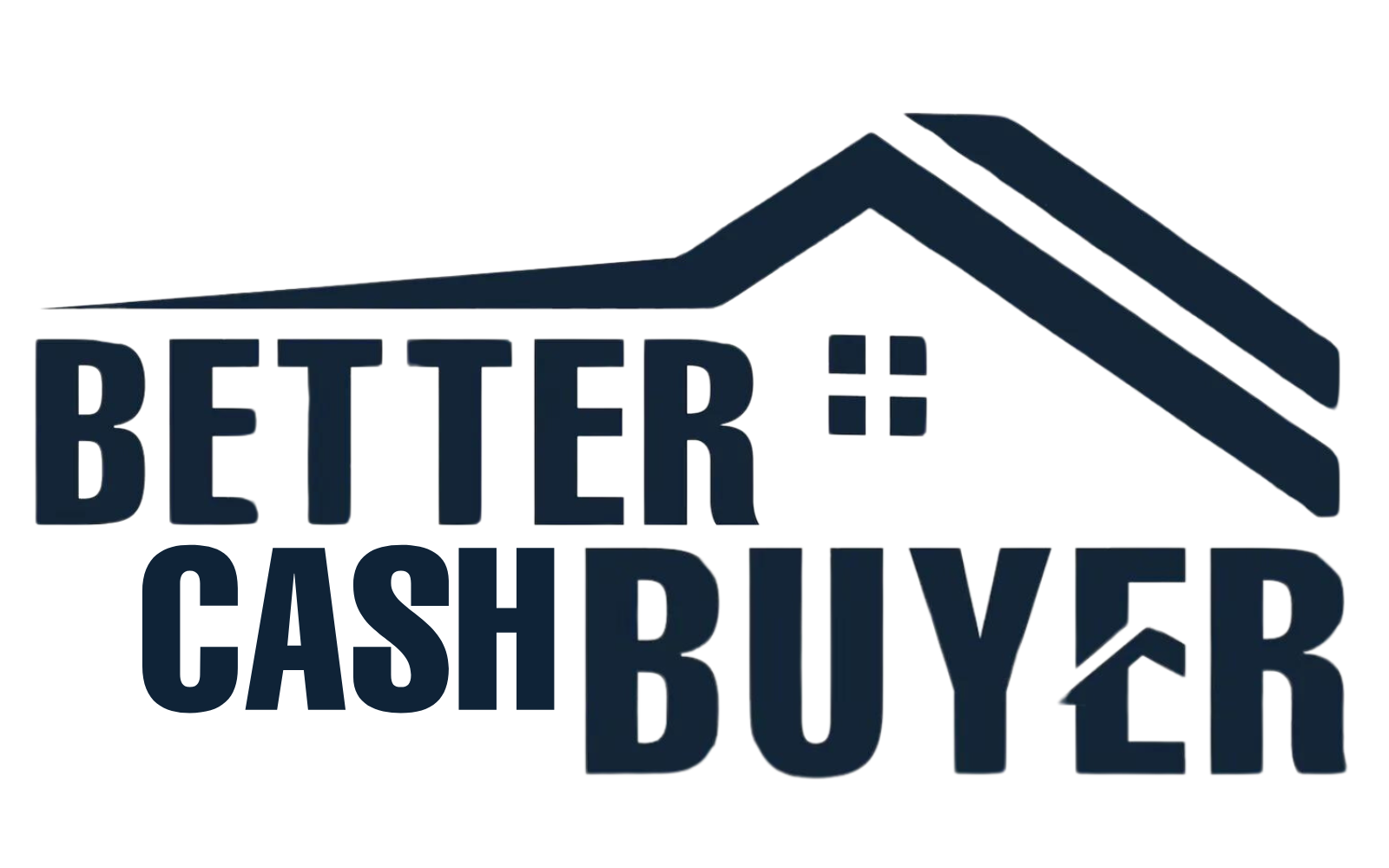
Selling your New Jersey home below market value is possible. Better Cash Buyer guides you through the risks, benefits, and key considerations.
Understanding Market Value vs. Sale Price in New Jersey
When you decide to sell your house in New Jersey, you need to know two important things: market value and sale price. Market value is the amount of money your house is worth right now, based on a number of things, such as where it is and how the real estate market is doing. The sale price, on the other hand, is the amount of money you actually get from the buyer. It’s important to connect these two things, especially in a real estate market like New Jersey’s that changes all the time. Look into these things more closely to help you make smart choices about selling your house.
What Determines Market Value in New Jersey?
There are a lot of objective and subjective aspects that go into figuring out the market worth. Primarily, location is very important; residences in New Jersey’s most desired neighborhoods usually have higher market values. Things like being close to schools, stores, and public transportation can greatly increase a home’s market value.
Also, the size and condition of a house are important. A house that is well-kept and has had recent upgrades in the kitchen or bathroom usually has a higher market value. Real estate professionals usually do a comparative market analysis to figure out how much a home is worth. This means looking at recent sales of homes that are similar in the region.
The real estate market’s worth also changes with the seasons. There may be more buyers in the spring, which would mean more demand and better market values than in the quieter winter months. Market value is also affected by things like interest rates and employment rates.
Knowing these factors can help you set the right price for your house when you list it in the competitive New Jersey real estate market. Knowing the market worth isn’t an exact science, but it gives you a good base for a successful transaction. A market value that takes into account both the item’s physical features and the present state of the market will probably lead to a sale price that satisfies your financial goals.
Factors Influencing Sale Price in a Jersey House
A house’s sale price often changes based on a number of factors, even though the market value serves as a guide. The main factor is the state of the market. In a seller’s market, where there are few homes for sale, the sale price is usually close to or higher than the market value. In a buyer’s market, on the other hand, where there are lots of homes for sale, the sale price may drop below what the homes are worth on the market because buyers have more power in negotiations.
Another factor is the person’s own situation. In New Jersey, sellers may agree to a cheaper sale price to get the deal done quickly because they need to move or need the money right away. The state of the house when it’s being sold can also have a big effect on the price. A house that has been well taken care of and doesn’t need any big repairs usually sells for more money. On the other hand, homes that need major repairs can get discounts.
Negotiation skills are also very important when it comes to setting the final price. Real estate professionals with a lot of experience and good negotiation skills can use their skills to get a higher sale price. Professional photos and home staging can also make a house look better, which could lead to a higher sale price.
To sum up, the real sale price depends on many things, such as market demand, buyer and seller motivation, and how well the home is presented. This number can be very different from the initial market value that was expected.
Factors like location, property condition, market trends, and neighborhood influence the price when you sell your home for cash in New Jersey.
Pros and Cons of Selling a House As-Is in New Jersey

Selling a house as-is in New Jersey has both good and bad points. People who want to avoid the hassle of repairs and renovations might think that selling as-is is a good idea. But there are also things that could go wrong, like a lower sale price and not enough people wanting to buy. By weighing the benefits and downsides, homeowners may make educated choices about the New Jersey real estate market. In this manner, companies can make sure that their ideas are right for them and the market right now.
Benefits of Selling As-Is in New Jersey
One significant advantage of selling as-is in New Jersey is the potential for a swift transaction. Selling your property in its current condition often enables a quicker closing process, as there is no need to allocate time for repairs or upgrades. This stage is particularly advantageous for individuals seeking to sell their property promptly, possibly due to financial requirements or relocation. Real estate professionals frequently mention that as-is sales simplify transactions by reducing the number of conditions included in the sale agreement. This efficient approach can result in reduced delays, thereby conserving both time and financial resources typically expended on conventional sales procedures.
Another advantage is that you will not be responsible for covering repair costs. Neglecting maintenance may result in significant initial savings; however, it does not necessarily imply that the sale price will increase proportionally. This is particularly attractive in New Jersey, where the cost of living is elevated, and the real estate market remains highly competitive. Investors seeking to acquire properties for profitable resale may also consider purchasing as-is properties, as they are generally less concerned with the initial appearance of the property at the time of purchase. Furthermore, sellers can more effectively position their listings to attract this type of customer with the assistance of experienced real estate professionals, which may result in quicker sales. In this instance, selling the property as-is may be a suitable option for individuals seeking a rapid sale rather than maximizing their financial return.
Potential Drawbacks of Selling As-Is in New Jersey
Real estate sellers who choose to sell their property in its current state may be able to speed up the process, but they must also carefully consider the downsides. One big problem is that you’re more likely to get a lower sale price than if you remodeled or took better care of the land. Customers often think that as-is homes need a lot of repairs, which makes them offer less than they would normally because they know how much it will cost to fix up. There may be a big difference between the expected market value and the final sale price in New Jersey’s competitive real estate market. This is because buyers think about how much repairs will cost compared to the published price.
This could also limit the number of people who are interested in buying it if it is sold in its present state. It’s possible that the thought of making repairs will put off many traditional buyers, especially first-time buyers. They want homes that are ready to move into right away. It’s possible that this lower interest will cause listings to last longer, which would defeat the purpose of as-is sales in saving time. An as-is state can also help buyers be more assertive in negotiations, since they know the seller may be trying to get the sale over with quickly. There may be more stress and delays if the first bids are much lower than expected. This could make the transaction process more difficult. Expertly marketing the property’s potential and getting in touch with investors who are actively seeking fixer-uppers are two important things that real estate professionals can do to help solve these problems. Sellers can navigate the market carefully and make their sales approach fit their financial goals if they understand the subtleties of selling as-is.
At Better Cash Buyer, we buy houses in Hackensack and other areas quickly, offering fair and hassle-free offers.
Legal Considerations for Selling Below Market Value in New Jersey

The sale of a property in New Jersey at a price below its market value may represent a deliberate strategy, yet it necessitates careful consideration of various legal implications. Comprehending these facets is essential for effectively addressing prospective obstacles, particularly concerning adherence to state regulations and the comprehension of associated tax ramifications. Vendors are obligated to adhere to New Jersey real estate regulations while appropriately addressing tax obligations stemming from below-market transactions. Through a comprehensive assessment of the existing regulatory environment and prospective tax implications, homeowners can make judicious choices, thereby aligning their financial objectives with their legal obligations.
Regulations in New Jersey
If you want to sell a house in New Jersey for less than what it’s worth on the market, you need to know the rules. People in New Jersey can sell their homes for less than what they’re worth on the market, but they should know what this means for them. First, state rules say that all important information about the property has to be made public, no matter how much is agreed upon. This means that any known issues with the house have to be shared with people who might be interested in buying it. There is still a lot of value in this part of New Jersey real estate deals.
There are also legal problems with fair market value, and if the terms of a deal aren’t clear, there is a chance of fraud or misrepresentation lawsuits. It’s also possible that the sale price being much lower than the market value would raise red flags with New Jersey’s Department of Revenue. They would then look into the deal more closely to make sure it’s not being done to avoid paying taxes. It is important to know what New Jersey’s fraud rules say, even if it is a family deal. For those who are suspicious, the people who set the different prices might need to explain why they chose those prices.
One thing that is often forgotten is that you have to follow any rules that your mortgage company sets. Lenders usually want a property to be sold for a price that is fair and equal to its estimated value. This is because they don’t want to lose money. You can be sure that all the rules are followed and that the deal is legal in New Jersey if you talk to an experienced real estate professional.
Impact on Taxes and Liabilities in New Jersey
In New Jersey, selling a house for less than its market value can lead to massive tax problems and other possible debts. Gift taxes apply when a property is sold for a lot less than its estimated market value. This is an important factor to consider. According to federal gift tax rules, the IRS could see the price difference as a present and tax it accordingly. For homeowners to be in line and avoid unexpected tax burdens, it’s important to know what New Jersey’s policy is on gift taxes and how it works with federal rules. For the sale to be legal and to be told apart from a normal real estate sale, the deal must be properly documented.
Furthermore, buyers may have to pay taxes related to the estate. According to one example, if the sale is part of planning an estate, then undervaluing the property can change the total value of the estate, which can change the amount of estate taxes that need to be paid. Regarding property taxes, the estimated market value is another thing to think about. There is a chance that the amount of taxes owed will be higher than the amount of money received from the sale of a property, even if it sells for less than what was originally valued.
Moreover, cash gains are also affected by taxes. It’s possible that if you sell your home for less than it’s worth on the market, your stated capital gains will be different, and your tax obligations will depend on the home’s basis value instead of its selling price. By keeping detailed records of the sale’s purpose and the market conditions at the time of the sale, you can protect yourself from legal scrutiny and avoid the appearance of lowering taxed income in a dishonest way.
For help navigating these complicated issues, talking to a tax expert who specializes in New Jersey real estate can help people understand their financial duties and competently handle their debts. At the same time, staying in line with regulations, this proactive method helps align the sale with long-term financial plans.
Sell your property fast with a smooth, hassle-free process. Contact Us at Better Cash Buyer.
Alternative Selling Strategies in the New Jersey Market

Changing conditions in New Jersey’s real estate market give buyers more options than the usual ways of selling. You can greatly affect the outcome of a sale by considering different selling methods, such as working with a family member or coming up with creative solutions. If a seller is thinking about using a different strategy, they need to know about the specifics, especially when it comes to family sales and the creativity that lies behind creative methods. Both methods have pros and cons that can appeal to different sellers, based on their situation and goals. By figuring out these strategies, sellers can negotiate the New Jersey market more effectively, maximizing possible benefits and minimizing risks.
How Selling to a Family Member Differs in New Jersey
There are good and bad things about selling a home to a family member in New Jersey. You need to think about a lot of things before you do it. There are some legal and financial issues that come up with this type of deal, even though it might seem simple because of the current relationship. Being able to talk and negotiate more quickly is one of the best things about selling to family. When two people know each other well, they can talk about things more easily, which lets both of them be open and honest.
To avoid disagreements and follow the law, sellers must make sure that the deal is set up fairly. New Jersey law says that a family sale must be as clear as a market sale, meaning that all information must be given and the property must be valued correctly. Such a move stops fraud and legal issues that might happen because of a deal that isn’t worth what it’s worth.
You should think about how your feelings might affect negotiations when you’re thinking about selling to family. It might be easier to negotiate with family, but it could also be more difficult if there are differences about the price or terms of the sale. A discount in the property value could mean different things to each party, so it’s important for everyone to be on the same page and have written deals that spell out the terms. Assuring family harmony and legal compliance are both helped by writing down these talks.
There are also tax effects that can come from selling something for less than its market value to family members. For example, the IRS could see the difference between the sale price and the market value as a present and tax it accordingly. To get around these possible problems, it’s important for buyers to talk to real estate professionals and lawyers who have experience with family affairs. A sale in the New Jersey market that is fair, legal, and good for everyone involved is made possible by balancing family obligations with legal duties.
Creative Approaches to Selling Your Home in New Jersey
New Jersey homes that want to stand out in a crowded market are turning to creative sales techniques. These new ideas are meant to help sellers get more people to see their home and attract a wide range of potential buyers. With some clever staging, you can make your home look much better without having to do a lot of work on it. Strategic setting brings out the best features of a home so that potential buyers can picture themselves living there. You might want to use virtual setup services that show you what the home could look like online. This method works especially well for empty homes because it gives them an interesting look that bare, unstaged homes can’t.
Using online platforms and social media can also help a seller reach a lot more people than just standard listings. By creating interesting virtual tours and using high-quality photos, sellers can offer an engaging experience that draws in tech-savvy buyers who want to see a lot of information before deciding to visit. Targeted social media advertising lets properties interact with the right people, which improves market interaction successfully.
Additionally, sellers may want to think about the possibility of making a stir through one-of-a-kind marketing events, like special open houses or tours of the neighborhood, which can attract local buyers eager to get involved with the community. These events show off the land and talk about the great things about living in the area, especially in New Jersey’s lively neighborhoods.
With these cutting-edge methods, sellers need to know a lot about how the market is changing and what customers want so they can tailor their sales strategies perfectly. Working with real estate professionals who are great at coming up with new ways to market homes can make these efforts much more successful. Real estate professionals who know how to sell homes in the modern market can give you important advice on how to improve your online profile and stage your home more effectively. In New Jersey, sellers can make their homes stand out in a crowded market by using these creative tactics. This will attract a wide range of potential buyers and could speed up the sales process while still getting good results.
Looking to sell your home? Better Cash Buyer offers fair cash offers, manages the entire process, and ensures a seamless sale. Call (347) 386-2549 to get started today!
FAQs:
What Are the Key Legal Considerations When Selling a House Below Market Value in New Jersey?
Full disclosure of material property information and compliance with state requirements are crucial when selling a house below market value in New Jersey to avoid fraud or misrepresentation accusations. Sellers should plan for Department of Revenue tax evasion investigations.
How Do Market Value and Sale Price Differ in Real Estate Transactions?
According to geography and market conditions, a house’s market value is estimated. Buyer pays the sale price. Market fluctuations and personal conditions can make the selling differ greatly.
What Are the Benefits and Drawbacks of Selling a Home As-Is in New Jersey?
Selling a home as-is can save time and money. Move-in-ready homes are preferred; therefore, it may cut the sale price and reduce the buyer pool.
What Tax Implications Should I Be Aware of When Selling a House Below Market Value?
Price differences may be considered gifts by the IRS, which could result in gift taxes. This may affect estate and property taxes. Consult a tax professional for these issues.
How Can Creative Selling Strategies Enhance My Property’s Market Appeal?
Home staging and social media can boost a property’s value. Staging and virtual tours let purchasers imagine living in the location.
Helpful New Jersey Blog Articles
- How to Avoid Closing Costs in New Jersey
- How To Remove Your Name From A New Jersey Mortgage
- Optimal Seasons For Selling Your Home In New Jersey
- Selling Your Investment Property In New Jersey
- Buying A New Jersey Home Before Selling Your Current One
- Refinancing Your Home After Divorce In New Jersey
- Exiting An HOA In New Jersey
- Fixing Up A House To Sell In New Jersey
- Selling Home with Reverse Mortgage in New Jersey
- Selling a House to a Family Member in New Jersey
- How to Sell a House With Code Violation in New Jersey
- Can I Sell My House Below Market Value in New Jersey?
- How Do I Short-Sell My House in New Jersey

